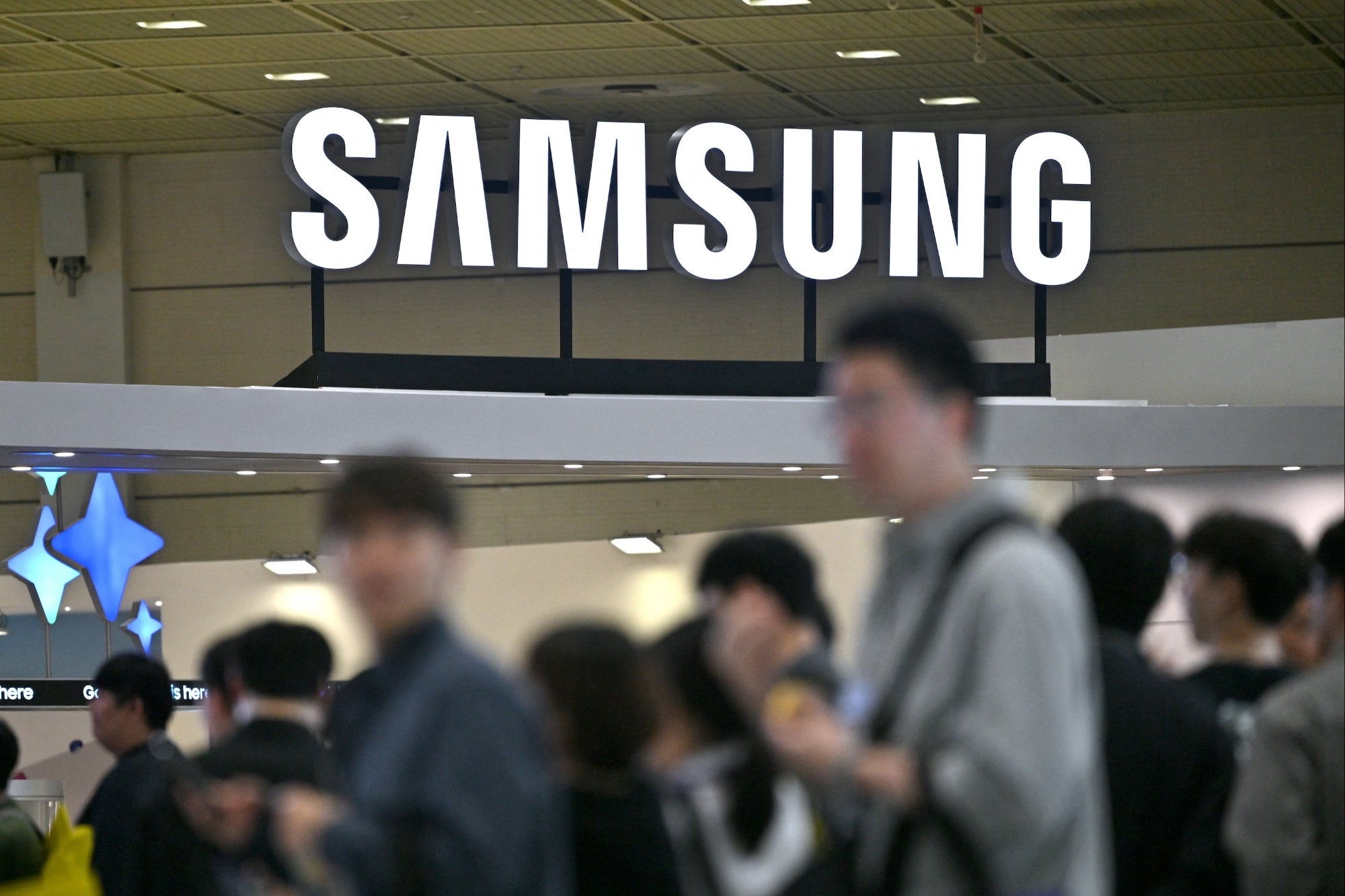Last October, CNET’s parent company, Red Ventures, held a cross-department meeting to discuss the AI writing software it had been building for months. The tool had been in testing internally ahead of public use on CNET, and Red Ventures’ early results revealed several potential issues.
AFFILIATE MARKETING
CNET pushed reporters to be more favorable to advertisers, staffers say

The AI system was always faster than human writers at generating stories, the company found, but editing its work took much longer than editing a real staffer’s copy. The tool also had a tendency to write sentences that sounded plausible but were incorrect, and it was known to plagiarize language from the sources it was trained on.
Red Ventures executives laid out all of these issues at the meeting and then made a fateful decision: CNET began publishing AI-generated stories anyway.
“They were well aware of the fact that the AI plagiarized and hallucinated,” a person who attended the meeting recalls. (Artificial intelligence tools have a tendency to insert false information into responses, which are sometimes called “hallucinations.”) “One of the things they were focused on when they developed the program was reducing plagiarism. I suppose that didn’t work out so well.”
Of the 77 articles published on CNET using the AI tool since it launched, more than half have had corrections appended to them, some lengthy and substantial, after use of the tool was revealed by Futurism. CNET editor-in-chief Connie Guglielmo, EVP of content and audience Lindsey Turrentine, and Red Ventures vice president of content Lance Davis defended the tool in an internal meeting with staff in January but said the company would pause the use of the tool “for now.” In a follow-up blog post, Guglielmo said publishing using the AI software was on hold until CNET was confident it could “prevent both human and AI errors,” but she was clear that this wasn’t the end of AI tools in the newsroom.
“Expect CNET to continue exploring and testing how AI can be used to help our teams as they go about their work testing, researching and crafting the unbiased advice and fact-based reporting we’re known for,” Guglielmo wrote.
“Everyone at CNET is more afraid of Red Ventures than they are of AI.”
But the controversial use of an AI system to generate stories even in the face of known issues with plagiarism and accuracy is merely the most visible outcome of Red Ventures’ ownership of CNET. Under the ownership of Red Ventures, a private equity-backed marketing firm that’s bought up more than a dozen digital publishers since the mid-2010s, staff at the storied tech news outlet say they have been fighting to protect CNET’s editorial independence and rigor amid a push toward sponsored content and affiliate marketing by its new corporate owners. As one staffer told The Verge for a previous piece, “Everyone at CNET is more afraid of Red Ventures than they are of AI.”
Multiple former employees told The Verge of instances where CNET staff felt pressured to change stories and reviews due to Red Ventures’ business dealings with advertisers. The forceful pivot toward Red Ventures’ affiliate marketing-driven business model — which generates revenue when readers click links to sign up for credit cards or buy products — began clearly influencing editorial strategy, with former employees saying that revenue objectives have begun creeping into editorial conversations.
Reporters, including on-camera video hosts, have been asked to create sponsored content, making staff uncomfortable with the increasingly blurry lines between editorial and sales. One person told The Verge that they were made aware of Red Ventures’ business relationship with a company whose product they were covering and that they felt pressured to change a review to be more favorable.
“I understood a supervisor to imply in conversation that how I proceeded with my review could impact my chances of promotion in the future,” they say.
Red Ventures ignored an emailed list of questions from The Verge about its AI tool as well as CNET’s editorial independence and ethics, advertising, and staffing. The company instead offered to send a short statement about CNET’s editorial integrity but refused to provide it on the record attributable to anyone.
This apparent breakdown of the traditional barriers between editorial and advertising content is worlds away from CNET’s history, according to former staffers. Now more than 25 years old, the site has long been known for its thorough news coverage and comprehensive reviews program, which examines everything from laptops and phones to bookshelf speakers and home projectors.
“[The reason I came to CNET] was the opportunity to be able to tell the truth no matter what,” a former staffer says. To them, working at CNET was different from other journalism jobs, where journalists can be honest but may need to self-edit. “You get to tell the truth [at other jobs], but a lot of times, you’re not allowed to say things that you really feel.”
But the CNET operated by Red Ventures is a very different place than the CNET it acquired in 2020. CNET, along with other Red Ventures-owned publications, is loading up on cheap SEO-driven articles to game Google’s search algorithm and fill search results with content designed to deliver affiliate links to readers. As a result, CNET’s independent journalism and the people who produce it — the thing that once made CNET valuable and rank highly in search to begin with — feel that they are being pushed out in favor of whatever and whomever else makes Red Ventures the most money, according to multiple former employees.
“When you’re [covering] products and not people, it’s really easy to be like, ‘This new Apple thing sucks.’ I just thought that was a refreshing change of pace to be able to say things as they are,” the former staffer says. “And that continued all the way until Red Ventures took over.”
After Red Ventures scooped up CNET for $500 million in 2020, CEO Ric Elias promised the outlet would be able to continue to be an independent publication known for its robust offering of reviews and in-the-weeds tech news coverage. CNET staff had nothing to worry about, Elias told The New York Times. There was a “nonnegotiable line” separating the journalism from the money, and CNET’s staff of tech journalists could call him on his personal cellphone if there were ever a problem.
“I told them, ‘There’s a red line,’ and they’re like, ‘OK, we’ll see,’” Elias said.
That skepticism now appears prescient. Former CNET staff say the guardrails that keep editorial content independent, like a divide between revenue teams and journalists, or a clear chain of command among leadership, were repeatedly breached after the Red Ventures acquisition. “Most of the time, [Guglielmo] seemed to just be relaying orders” from Red Ventures, a former staffer says. In turn, journalists were placed in difficult positions as they tried to fend off the encroaching influence of the business side.
Former CNET staffers describe being asked to work on ads for companies that the outlet covers, including Volvo and home security company Arlo and having to push back against such requests from executives at the company. Three people told The Verge that they believe resistance to Red Ventures initiatives caused various CNET staffers to lose their jobs, with one saying that the pressure to be a “yes man” was a “collective experience” for some teams.
Multiple former CNET staffers point to the demise of the CNET Smart Home as an example of Red Ventures’ overreach. The Smart Home — a four-bedroom, five-bathroom home in Louisville, Kentucky, that the outlet had purchased in 2015 to test and produce videos on home products like robot vacuums and thermostats — had become something of a brand in and of itself. Since Red Ventures’ takeover, Smart Home staff repeatedly refused to work on sponsored content, saying it went against the integrity of their work. Readers look to tech reviewers for honest, unbiased assessments of companies’ products and services, and working on content that is paid for by these same companies can cast doubt on a reviewer’s ability to be independent.
“It’s a culture that if you disagree with them, they’re going to get rid of you and replace you with a zealot.”
In 2022, a Red Ventures executive named Marc McCollum stopped by the Smart Home for a short walk-through. McCollum, according to his LinkedIn profile, led the acquisition of CNET Media Group. A former staffer says he played a key role in the transition, with a focus on increasing profits.
Shortly after McCollum’s visit, teams working out of the Smart Home learned that the company was planning on selling the house, and people working at the house believed their jobs would be at risk if the space were sold. But McCollum indicated that the company may be able to keep the house if it secured a lucrative advertising deal with GE, which had expressed interest in using the Smart Home for a commercial, multiple former employees say.
Hoping to avoid layoffs, some CNET staff pitched in on the GE deal in early talks and planning, and Red Ventures inked a deal. But CNET editorial staffers refused to shoot the ad itself, and contractors were ultimately used to work on the commercial, a former staffer says.
The GE shoot was ultimately moved from the Smart Home to an off-site location due to space limitations at the house, a GE Appliances spokesperson who would only identify themselves as “Whitney” told The Verge via email. GE was not aware of Red Ventures’ plans to sell the house, “Whitney” added.
But by the time the GE ad was released in September, many staff on the Smart Home team had already left the company. Seeing the “writing on the wall” — that the house would soon be put up for sale — some people were able to land new roles, a former staffer says; others were laid off that summer. The house was put up for sale shortly after the GE ad anyway, eventually selling in December for $1.275 million, according to Zillow.
“It’s a culture that if you disagree with them, they’re going to get rid of you and replace you with a zealot,” a former employee, who was laid off, says of Red Ventures. “Somebody that’s absolutely a true believer, [that] drinks the Kool-Aid.”
Former CNET staffers say their colleagues have also been pressured into appearing in ads for companies the outlet covers despite the murky ethics of using reporters in sponsored content. On-camera video hosts were uncomfortable with the idea of being in ads and pushed back against it, according to several former staffers. Using recognizable journalists for video content that’s paid for by advertisers can blur the lines and make it hard for viewers to tell what is and isn’t an ad.
In one recent video, titled “Moen Unveils Innovative Smart Sprinkler Product at CES,” a CNET host takes viewers through the company’s booth at January’s Consumer Electronics Show, interviewing company representatives and testing products. The video is an ad, but the host doesn’t say that, and neither the video description nor title included a disclosure until recently. The only disclaimer was a small pop-up that YouTube inserts when an uploader has indicated there’s a paid promotion in a video, though CNET doesn’t actually specify what in the video is promoted. Moen did not respond to multiple requests for comment about the nature of the sponsorship or its labeling. After The Verge asked Red Ventures about the ad, a disclosure was silently added to the video’s description.
One of the key priorities for Red Ventures seems to be the company’s focus on affiliate links, which pepper its portfolio of sites like The Points Guy, Bankrate, and CreditCards.com. Over time, a focus on affiliate revenue has crept into CNET’s editorial decisions, causing frustration among staff.
In one meeting after the Red Ventures acquisition, a former employee says editorial staff were shown how much the company earned through affiliate categories like home furnishings with the suggestion they keep it in mind when producing future content. CNET staffers were also told that a separate commerce team would begin writing video descriptions that included affiliate links, which many people worried would suggest on-camera hosts were endorsing specific products.
“Red Ventures’ big mantra is that they help people make life’s most important decisions,” a former staffer says. “And yet all of their influence has been to get people to make decisions that are going to be the most profitable to Red Ventures.”
CNET staff say that the proximity to revenue made it harder to maintain the editorial standards
“It’s very demoralizing. It’s actually soul-crushing. All you want to do is your job and you’re being told, ‘Don’t cover this,’ because the revenue potential is not there,” another former staff member says.
Advertising is what keeps most digital media companies afloat, and affiliate marketing is common across the industry. (The Verge earns a commission from affiliate links, as do other Vox Media-owned outlets, like The Strategist.) But in many newsrooms, there is a strict separation between the people dealing with advertisers and the people producing the news. At The Verge, for example, editorial staff never work on ads, and reviews writers don’t know how much parent company Vox Media earns through specific affiliate marketing links.
But under Red Ventures, former CNET staff say that the proximity to revenue made it harder and harder to maintain the editorial standards promised to audiences.
“I do believe that the journalists who are doing the work at CNET are extremely ethical. I think that they have a lot of integrity, I think they work really hard,” they say. “But I think that they are under a great deal of pressure to make money for Red Ventures. And that’s just never a good situation for journalists.”
Though the AI tool generating stories for CNET, Bankrate, and CreditCards.com was formally announced just weeks ago, Red Ventures’ “experiment” with enlisting artificial intelligence has been underway much longer. Like other publishers who’ve incorporated automated tools into their work, the Red Ventures proprietary AI software was sold to the newsroom as a way to more efficiently produce “the boring stuff” so writers could use their time instead and work on bigger projects. In actuality, enlisting artificial intelligence to write SEO bait accelerates the speed at which Red Ventures-owned websites can churn out search-optimized content loaded with affiliate links, cutting down the need for human writers — and the reporting they produce.
For Sarah Szczypinski, a former journalist on the CNET Money team who left the outlet in early 2022, the association with CNET in light of the AI-writing saga has been frustrating. Though Szczypinski quit many months before the AI-generated articles began appearing, people have started contacting her after the news broke, wondering if she, too, had used AI tools for her stories. Szczypinski maintains she wrote her stories on her own, without automation tools.
“The leadership team gave no thought to what these unilateral decisions would do to the people working there, especially the people who are journalists and need their readers to trust them,” Szczypinski told The Verge. “We still have lives to live and careers to forge. And we can’t do that with something as damaging as this hanging over our heads.”
In late January, Szczypinski contacted Red Ventures and CNET, asking to have her author page and bylines pulled. Her name has been scrubbed from dozens of articles, now replaced simply by “CNET Staff.”
Throughout the time Red Ventures has owned CNET, the outlet’s leadership has promised readers time and again that its journalism is as strong as ever. Even as Guglielmo, Turrentine, and Red Ventures executives dodged questions from readers, staff, and reporters about the AI system, they pointed to CNET’s track record built over decades as evidence of trustworthiness. Audiences trust CNET for tech news, reviews, and recommendations, they reasoned, so they can trust CNET for how to move forward with artificial intelligence.
But even the more public ways CNET has tried to elicit trust from its audience have been hollowed out by a relentless drive toward optimization and gaming the search algorithm at the expense of the very work that had made CNET valuable.
CNET’s public ethics policy has not been meaningfully updated in years — it still lists CBS as its parent company — but last year, the publication added nearly a dozen links detailing exactly how it tests and vets products to a hyper-specific degree, with separate posts for how CNET reviews everything from credit cards and TVs to vacuums and more. One way of looking at these posts is to provide readers — and potential customers — with as much detail as possible about CNET’s methodology.
But for Red Ventures, these articles are just more fodder to boost its bottom line: Google likes when publishers demonstrate “experience, expertise, authority, and trustworthiness,” and the search algorithm factors in articles like these when it ranks search results. Articles packed with words like “unbiased,” “credible,” and “thoroughly vetted” are great for Red Ventures’ SEO-heavy strategy.
After all, Google can’t tell if it’s true.
AFFILIATE MARKETING
Samsung: 6-Day Workweek For Execs, Company in Emergency Mode

Four-day workweeks might have all the buzz, but one major tech company is going in the opposite direction.
Samsung is implementing a six-day workweek for all executives after some of the firm’s core businesses delivered lower-than-expected financial results last year.
A Samsung Group executive told a Korean news outlet that “considering that performance of our major units, including Samsung Electronics Co., fell short of expectations in 2023, we are introducing the six-day work week for executives to inject a sense of crisis and make all-out efforts to overcome this crisis.”
Lower performance combined with other economic uncertainties like high borrowing costs have pushed the South Korean company to enter “emergency mode,” per The Korea Economic Daily.
Related: Apple Is No Longer the Top Phonemaker in the World as AI Pressure and Competition Intensifies
Executives at all Samsung Group divisions will be affected, including those in sales and manufacturing, according to the report.
Samsung had its worst financial year in over a decade in 2023, with the Wall Street Journal reporting that net profit fell 73% in Q4. It also lost its top spot on the global smartphone market to Apple in the same quarter, though it reclaimed it this year.
Though employees below the executive level aren’t yet mandated to clock in on weekends, some might follow the unwritten example of their bosses. After all, The Korea Economic Daily reports that executives across some Samsung divisions have been voluntarily working six days a week since January, before the company decided to implement the six-day workweek policy.
Entrepreneur has reached out to Samsung’s U.S. newsroom to ask if this news includes executives situated globally, including in the U.S., or if it only affects employees in Korea. Samsung did not immediately respond.
Research on the relationship between hours worked and output shows that working more does not necessarily increase productivity.
A Stanford project, for example, found that overwork leads to decreased total output. Average productivity decreases due to stress, sleep deprivation, and other factors “to the extent that the additional hours [worked] provide no benefit (and, in fact, are detrimental),” the study said.
Related: Samsung’s Newest Galaxy Gadget Aims ‘To See How Productive You Can Be’
Longer hours can also mean long-term health effects. The World Health Organization found that working more than 55 hours a week decreases life expectancy and increases the risk of stroke by 35%.
The same 55-hour workweek leads to a 17% higher risk of heart disease, per the same study.
AFFILIATE MARKETING
John Deere Hiring CTO ‘Chief Tractor Officer,’ TikTok Creator

This article originally appeared on Business Insider.
Agriculture equipment company John Deere is on the hunt for a different kind of CTO.
The brand on Tuesday announced a two-week search to find a “Chief Tractor Officer” who would create social media content to reach younger consumers.
One winning applicant will receive up to $192,300 to traverse the country over the next several months showcasing the way John Deere products are used by workers, from Yellowstone National Park to Chicago’s Wrigley Field and beyond.
“No matter what you do — whether it’s your coffee, getting dressed in the morning, driving to work, the building you go into — it’s all been touched by a construction worker, a farmer, or a lawn care maintenance group,” Jen Hartmann, John Deere’s global director of strategic public relations, told AdAge.
To kick off the search, John Deere tapped NFL quarterback Brock Purdy (who will presumably be a bit busy this Fall to take the job himself) to star in a clip in which he attempts to set out on a road trip in an industrial tractor.
Suited up in the obligatory vest, work boots, and John Deere hat, Purdy’s progress is interrupted by teammate Colton McKivitz hopping into the cab while a string of messages floods in from other athletes and influencers expressing interest in the job.
The clip also represents the first time that the 187-year-old company has used celebrities to promote itself, Hartmann told AdAge.
According to the contest rules, entrants have until April 29 at midnight to submit a single 60-second video making their pitch for why they should be the face and voice of the company.
In addition, entrants must live in the 48 contiguous states or DC — sorry Hawaii and Alaska residents. Interestingly, any AI-generated submissions are prohibited, too.
Videos will be judged against four categories — originally, creativity, quality, and brand knowledge — after which five finalists will be chosen and notified after May 17.
AFFILIATE MARKETING
How to Capitalize On This Thriving Talent Pool to Drive Your Company’s Growth

Opinions expressed by Entrepreneur contributors are their own.
As business operations shift, executives and entrepreneurs are increasingly turning to an on-demand workforce that is simultaneously empowered by technology and drawn to purpose-driven projects.
Consider Upwork, whose 2020 Future of Workforce Pulse Report revealed that nearly 80% of hiring managers engaging freelancers feel confident about doing so. These hires provide coveted expertise — on a project-to-project basis — that entrepreneurs need to scale their operations without incurring long-term overhead costs.
This new market paradigm also promotes dynamism, with 79% of businesses agreeing that freelance talent enables greater innovativeness. Perhaps most telling, 84% of hiring managers utilizing it feel more assured about adapting to future disruption, compared to just 69% of those relying solely on full-time staff.
By capitalizing on freelance marketplaces, entrepreneurs can amplify employer branding, augment capabilities and future-proof organizations, even amid turbulence. As nearly 60% of hiring managers plan to increase engagement with freelancers over the next two years, the time is now for executives to realize their inherent potential.
Related: Navigating the Great Reshuffle: Why Your Employer Brand is Key in Recruiting Talent
The job market continues to shift
After a season of massive hiring, we’re back to seeing layoffs and downsizing. Companies are feeling the bloat—from unused office spaces with rising rent to oversized employee structures — and are shifting focus to hiring only the most essential positions. This leaves a critical talent gap needed for complex projects and specialized tasks. Highly skilled and specialized independents can fill this void.
A few key benefits to engaging them:
• Access to niche experts: Platforms like Toptal and Guru provide access to elite professionals from leading Fortune 500 companies and innovative startups. Whether the need is for a machine learning specialist, growth strategist or financial modeler, entrepreneurs can now curate on-demand teams that boast specialized skillsets, enabling them to focus investment on projects with the highest strategic value.
• Enhanced agility: Leading corporations increasingly “rent” skills by tapping freelance experts for initiatives involving new technologies or while entering unfamiliar markets. With niche contributors available to plug knowledge gaps, owners can explore ideas that once seemed unrealistic due to internal constraints—unlocking inventiveness and first-mover advantage.
• Stronger employment brand: Blending full-time employees with project-based freelancers signals a commitment to modernization and work-life balance. Offering both engaging work and flexibility will help draw exceptional candidates and help you compete with corporate giants for top-tier talent.
Related: Can Retirees Thrive in the Gig Economy? Navigating a Changed Workforce
Tips for capitalizing on gig talent
Having explored the forces reshaping work, executives may wonder how to effectively leverage freelance platforms. After all, how can you know you’re getting your money’s worth if a hire isn’t physically present full-time?
• Define projects clearly: Contract hires thrive when expectations and deadlines are established upfront. So, clearly, detail needs around deliverables, success metrics, required skills and projected time investments. Staying ahead when it comes to communication and expectations will help avoid headaches, including delays.
• Build loyalty with talent: The best independent professionals have options regarding the projects they accept. Study their profiles to discern passions and incentives. Offer interesting work, flexibility and strong communication to motivate interest and improve results.
• Manage collaboration: Provide steady context, feedback and guidance at each project stage, but also foster autonomy, even while directing efforts toward strategic goals. A dynamic balance of these qualities drives optimal outcomes.
• Continue expanding your talent pool: Add proven freelancers to an internal database for repeat engagements, and notify talent about new initiatives for which their expertise would provide an edge. Uncovering additional ways, freelancers can enhance the business deepens the relationship.
Related: Fill Your Talent Gap by Sourcing Candidates From the Veteran Community
Top platforms for connecting with talent
Now comes the hard part: finding contractors who bring fractional expertise sets. There are a growing number of platforms, of course, but I’ve found that the following stand out as leaders:
Fiverr: Ideal for execs seeking design, digital marketing, writing, video and admin support. Known for affordability and ease of posting jobs. It taps a global talent pool, too.
Upwork: A flexible platform that spans more than 150 skills. Used by everyone from small businesses to global enterprises. Strong at IT, development, design, finance and consulting.
Toptal: Focuses exclusively on the top 3% of talent. Best for expert software developers, designers, project managers and finance experts. All contributors are extensively vetted.
Contra: A growing independent platform that vets and connects both job candidates and hiring companies. Best of all, it doesn’t take a commission from projects.
Related: 3 Strategies to Optimize Your Hiring Process and Find the Best Employees
The numbers speak for themselves: businesses engaging freelance professionals report greater confidence and competitiveness, as well as the ability to withstand turbulence, yet legacy beliefs can still cause hesitancy among those keen to hire. Supported by such specialized collaborators, companies can explore new horizons unencumbered by a one-time narrow view of staffing models.
-

 MARKETING7 days ago
MARKETING7 days agoRoundel Media Studio: What to Expect From Target’s New Self-Service Platform
-

 SEO6 days ago
SEO6 days agoGoogle Limits News Links In California Over Proposed ‘Link Tax’ Law
-
SEARCHENGINES6 days ago
Daily Search Forum Recap: April 12, 2024
-

 SEARCHENGINES5 days ago
SEARCHENGINES5 days agoGoogle Core Update Volatility, Helpful Content Update Gone, Dangerous Google Search Results & Google Ads Confusion
-

 SEO5 days ago
SEO5 days ago10 Paid Search & PPC Planning Best Practices
-

 SEO7 days ago
SEO7 days agoGoogle Unplugs “Notes on Search” Experiment
-

 MARKETING6 days ago
MARKETING6 days ago2 Ways to Take Back the Power in Your Business: Part 2
-

 MARKETING4 days ago
MARKETING4 days ago5 Psychological Tactics to Write Better Emails















You must be logged in to post a comment Login